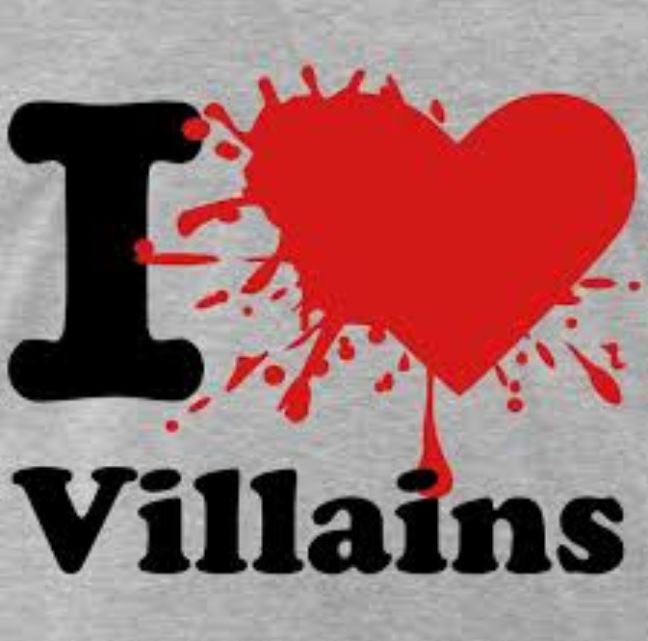 And does that love have any relation with the fact that I dated plenty of assholes in the past?
And does that love have any relation with the fact that I dated plenty of assholes in the past?
I just realized I spent 10 years boycotting my own happiness, but OK.
Back to the subject, I love villains. In fact, I root for the villains. A book without a good villain (or five, for good measure) doesn’t interest me. I probably won’t even finish it. There’s only so many pages of cinnamon roll-ness I can withstand. And I often wonder why.
This is my point: a good villain often represents dissent. The idea(s) dismissed by society at large as crazy or too bold. Sometimes villains are flat out criminals (which is lazy writing, bye). Other times, villains are the heart of the book: the villains are the questions, the ideas, the disagreement with the book’s world system. The villains are the chance to ask what works (or not) for whom —and why.
I read books to explore. I write books to fly.
In my version of flying, I’m always thinking. My worlds aren’t places where I get to live the events I wished I could live in real life (that’s self-insertion, buddy. I’m not narcissistic enough to do that). Flying, for me, is a constant conversation with myself about whatever obsession is rattling inside of my mind. It’s me holding the hands of my ideas and seeing where it goes.
Give me your ideas, not all the stuff you recycled from what someone else wrote because you were too lazy to think of something else.
Give me your villains —but don’t make them bad just because. Instead, let them tell me why they have a controversial and smart vision that doesn’t align with that of the hero or heroine.
Better yet: don’t give me a hero/heroine, let them all fall.
Discover more from ALEXANDRA ATMAN
Subscribe to get the latest posts sent to your email.